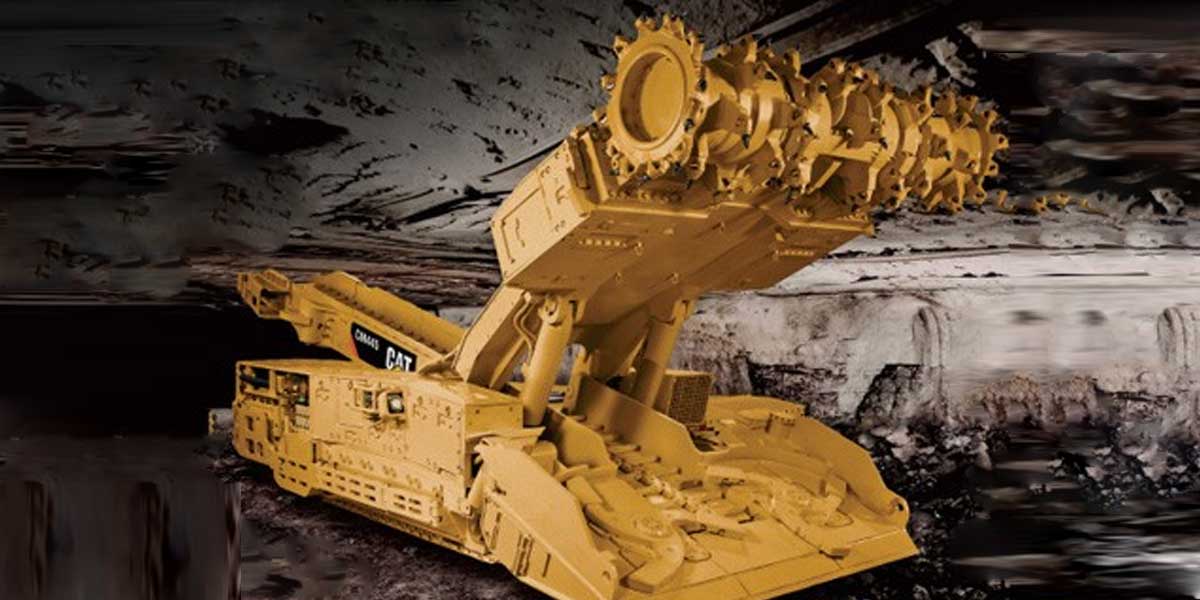China's Northern Heavy Industries (NHI) said it will create a new era for the development of coal mining equipment in China with the use of tunnel boring machines (TBMs).
China's coal resources are often located at significant depths with complicated geological conditions. The road-header excavation or the traditional drill and blast method generally face the disadvantages of high cost, slow progress, sometimes dangerous conditions, a poor working environment, and poor tunnel forming when used coal mine roadway tunnelling.
In recent years, NHI has been increasingly applying TBMs in China's coal industry. A TBM with a diameter of 4.53 m was developed in the Zhangji mine of Huainan Mining Group in Anhui Province for rock roadways in 2014.
It successfully advanced 2 km in 2015, at a depth of 500 m underground. With an average monthly advance of 404 m and the highest daily advance of 30.7 m, a new record in coal mine rock roadway construction was set, the highest monthly advance being 4.5 times higher and the daily advance being 10 times higher than the traditional technologies.
In April 2019, NHI successfully fabricated a 6.33 m large-diameter full-section TBM for coal mine rock. This machine was designed especially for the New Dragon coal mine in the Xinjulong mining area by Shandong Energy.
In December 2019, a TBM with a diameter of 4.53 m was delivered which was put into the Xinyuan mine of Yangquan Coal Group with further design and construction improvements on the two previously delivered machines.
Since 2016, NHI has also acquired US-based The Robbins Company, which is itself well known for the successful application of TBMs in mining with examples including Stillwater platinum and palladium mine in Montana, USA; Ok Tedi copper and gold mine in PNG and Anglo American's Grosvenor coal mine in Australia.
Referred to as semi-coal rock TBMs, the latest TBMs from NHI are able to change from cutting rock strata to half rock and half coal (often found with many thin coal seams, where there is a rock in development areas) where needed. One of these was delivered to the Zhaizhen coal mine of Xinwen Mining Group in May 2020, also part of Shandong Energy. Fully operational, the "Xinwen One '' full-section semi-coal rock TBM has now been commissioned. Its 4-piece compound cutter disc has a diameter of 4.5 m, and it is 60 m long.
NHI is the only heavy machinery manufacturing enterprise in the world that currently applies TBMs on a major scale to the construction of coal mine rock roadways. The system of machines can be designed and customised according to the user's requirements, such as arch frame, mesh, advance drilling, anchor rod, synchronous spray mixing (shotcreting), and for the special requirements of the project, a complete set of solutions can be provided such as site assembly, site transfer, well (shaft) transportation, disassembly, initial operation, etc.
As an example, the excavated wall and the shield in the most recent NHI project at Zhaizhen are without unsupported roof distance and are supported by a continuous row of steel bars, so that the electromechanical equipment and underground construction workers are well protected. There are independent air outlets at the tail of the main machine and at the rear of the trailer. The wind speed was up to 0.5 m/s at the rear of the trailer. There were independent air extraction channels and dedusting inside the main beam and dry dedusting system, and the cutterhead excavation bin which could effectively ensure smooth ventilation, fresh air, and appropriate temperatures for the underground workers. The sprayed water mist shall cover the entire excavation section in the process of rotary excavation by the cutterhead to effectively suppress the generation of dust and sparks.
Designed and developed by NHI, the full-section TBM used for coal mine rock roadway has a capacity of up to 5.4 m/h. With good surrounding rock integrity, the average monthly advance of the full-section TBM can be more than 1,000 m/mth within 100 MPa rock. It can also cope with the excavation of rock stratum up to 200 MPa at the same time and still achieve 600 m/mth. Such working efficiency is 20 times that of traditional construction methods.




















